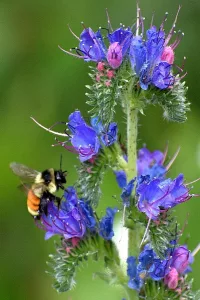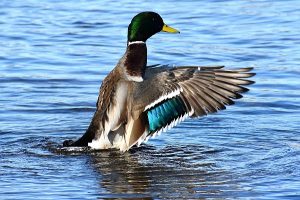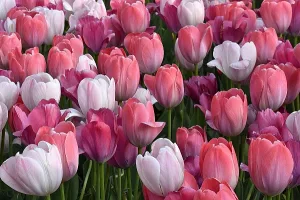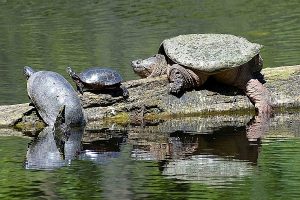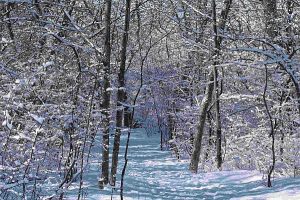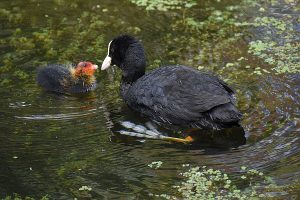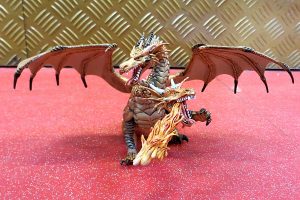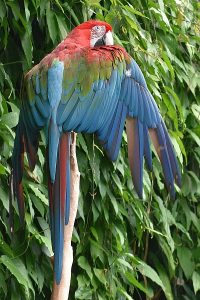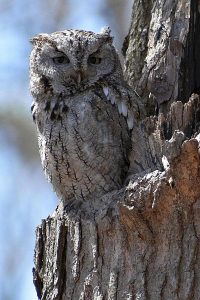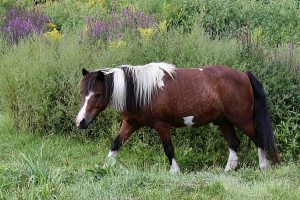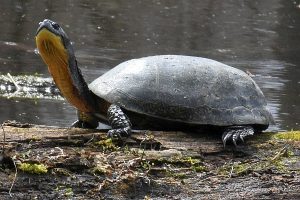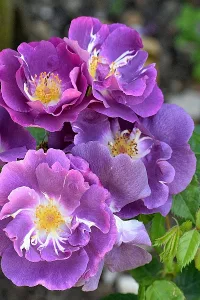Photo of the Month
July 2024
Bee on Pink and Blue Viper's Bugloss
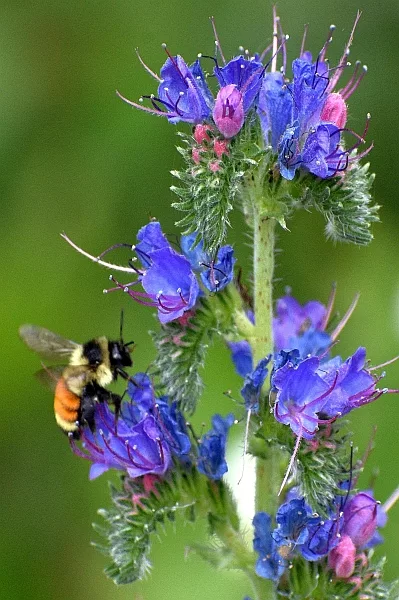
Photo of the Month Archive
July 2023
Pink Orchid at Mile Zero
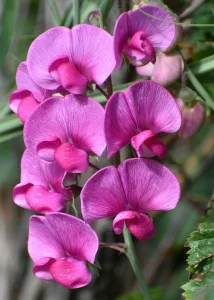
June 2023
Rear View Cardinal
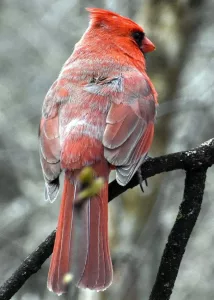
May 2023
Bee Coming Out of a Platycodon Flower
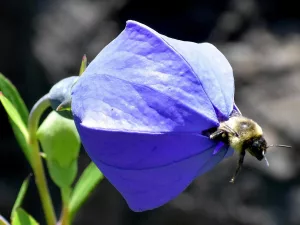
April 2023
White-Faced
Whistling Ducks Standing
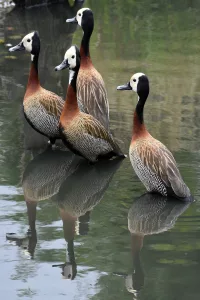
March 2023
Fox Sitting
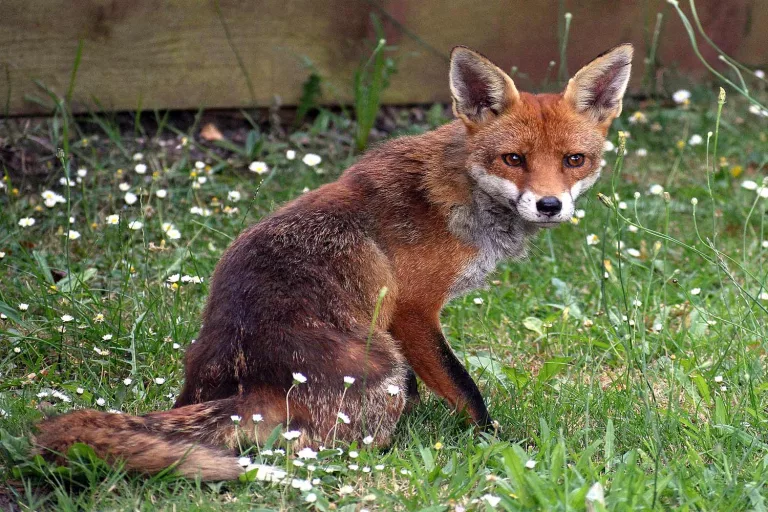
February 2023
Two Pelicans Beak to Beak
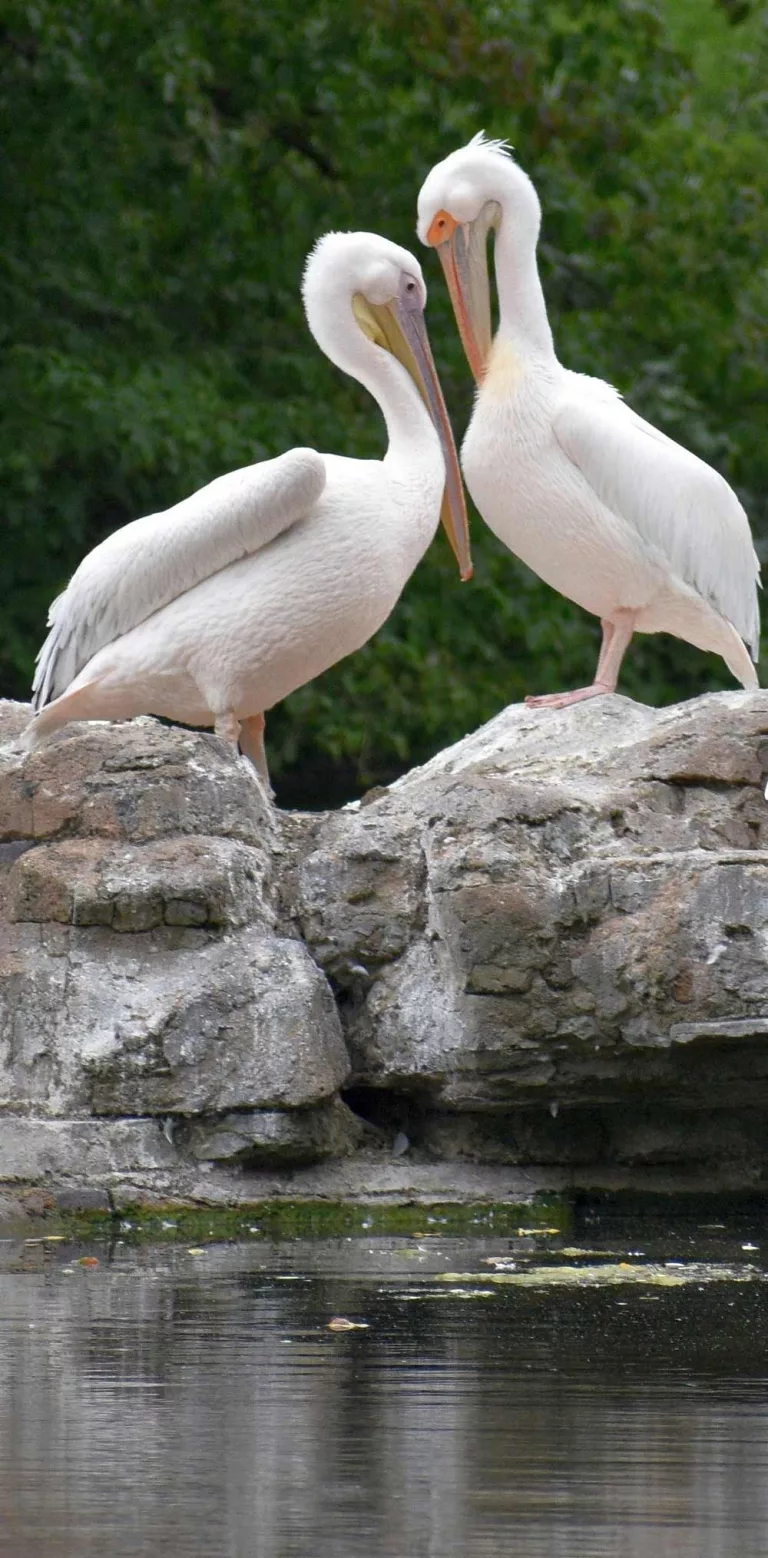
January 2023
Rabbit on High Alert
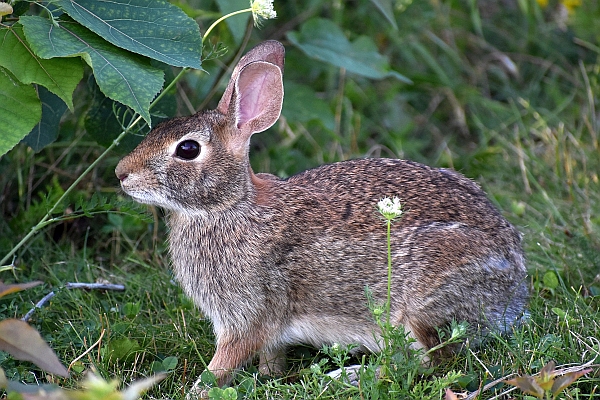
December 2022
In Full Bloom
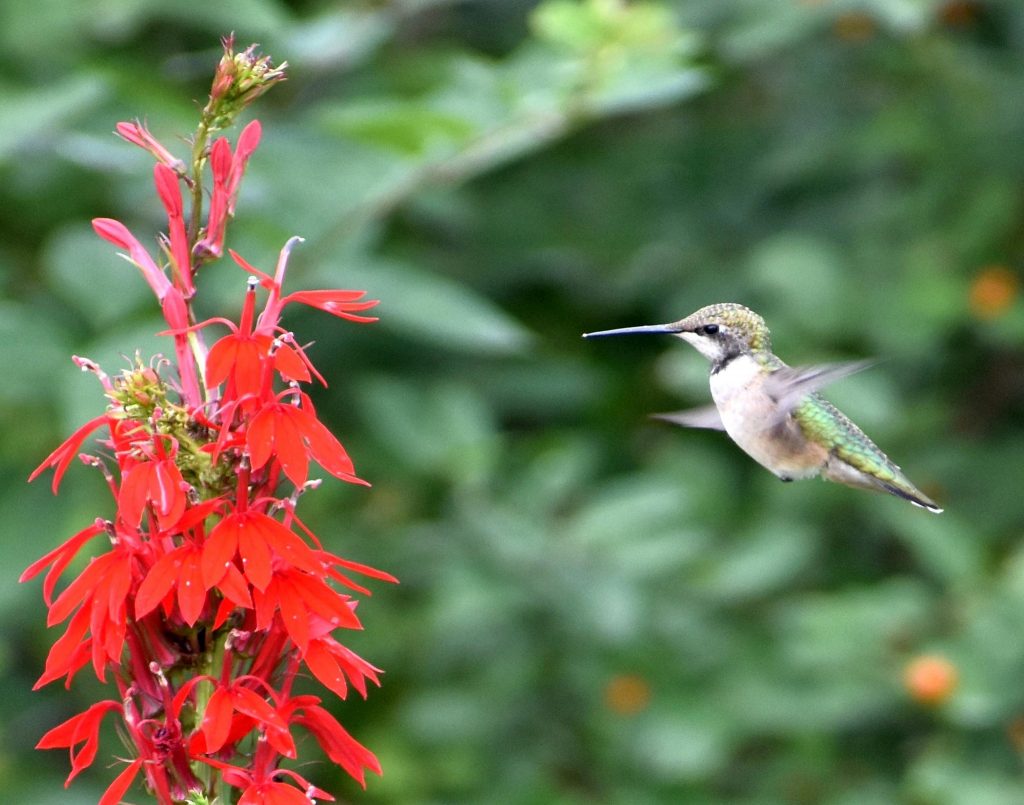
November 2022
In Full Bloom
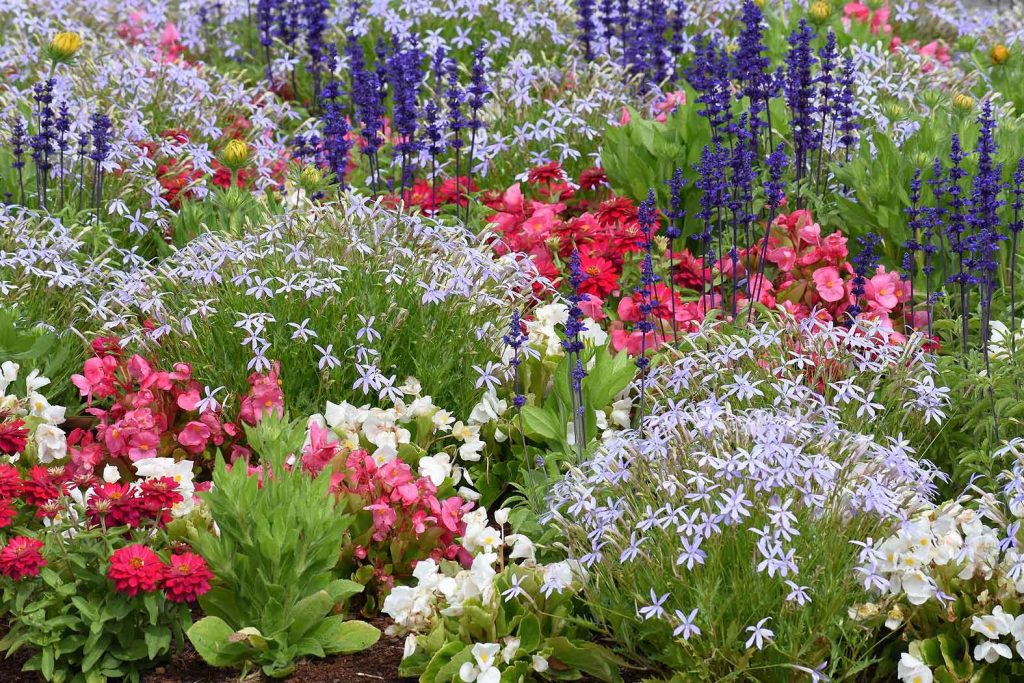
October 2022
Still Water at New Place
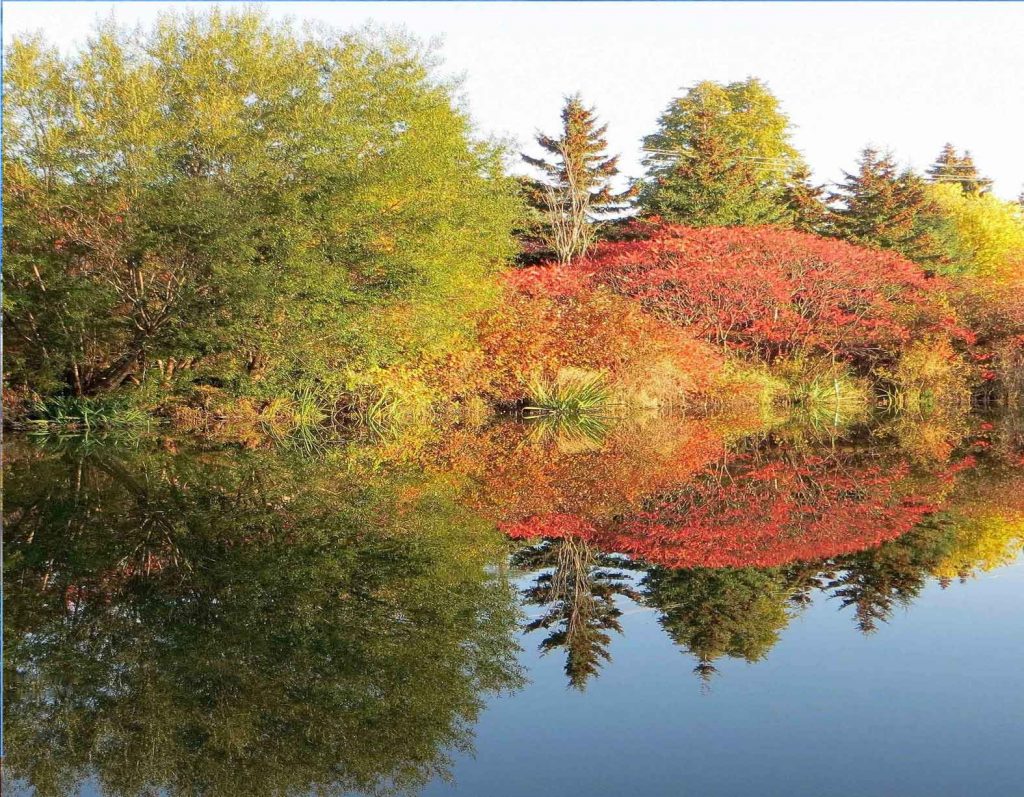
September 2022
Prairie Smoke
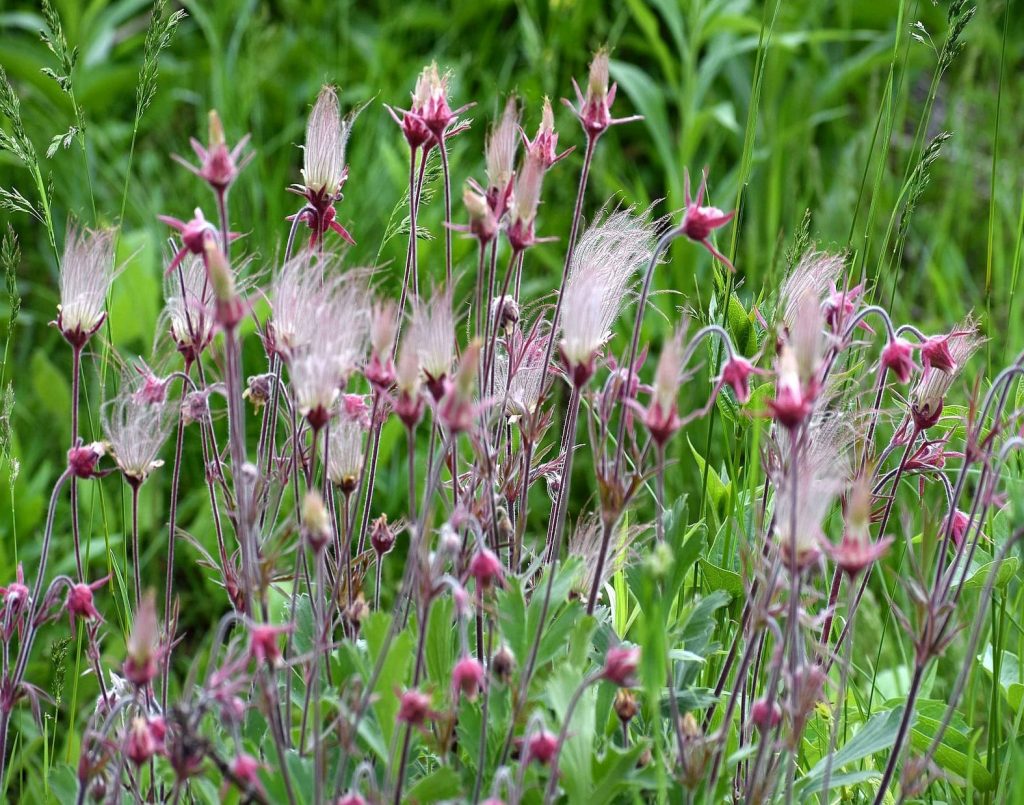
August 2022
Butterfly on Wild Purple Asters
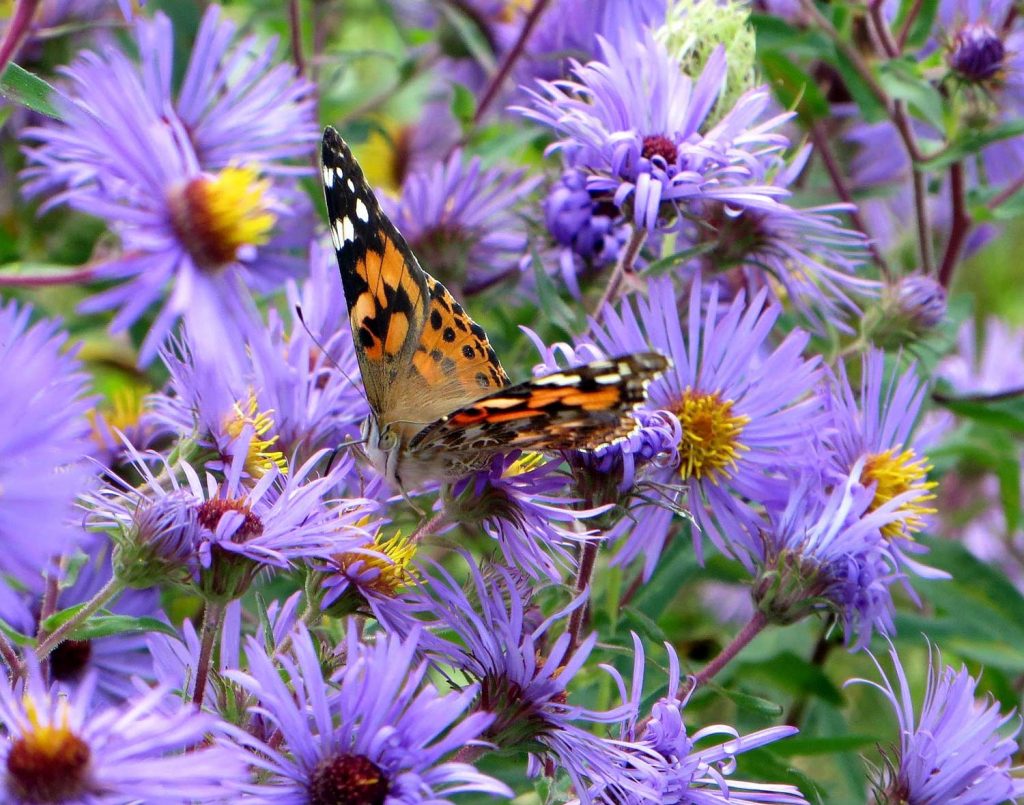
July 2022
Spider on Orchid
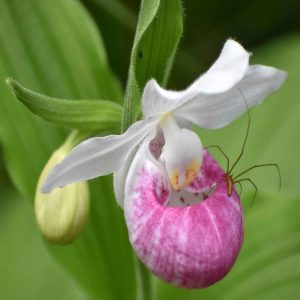
This picture was taken at the Purdon Conservation Area, in Ontario, where you can walk along a 400-metre boardwalk trail that takes you through the largest colony of Showy Lady’s Orchids in Canada.
June 2022
Otter on Rock
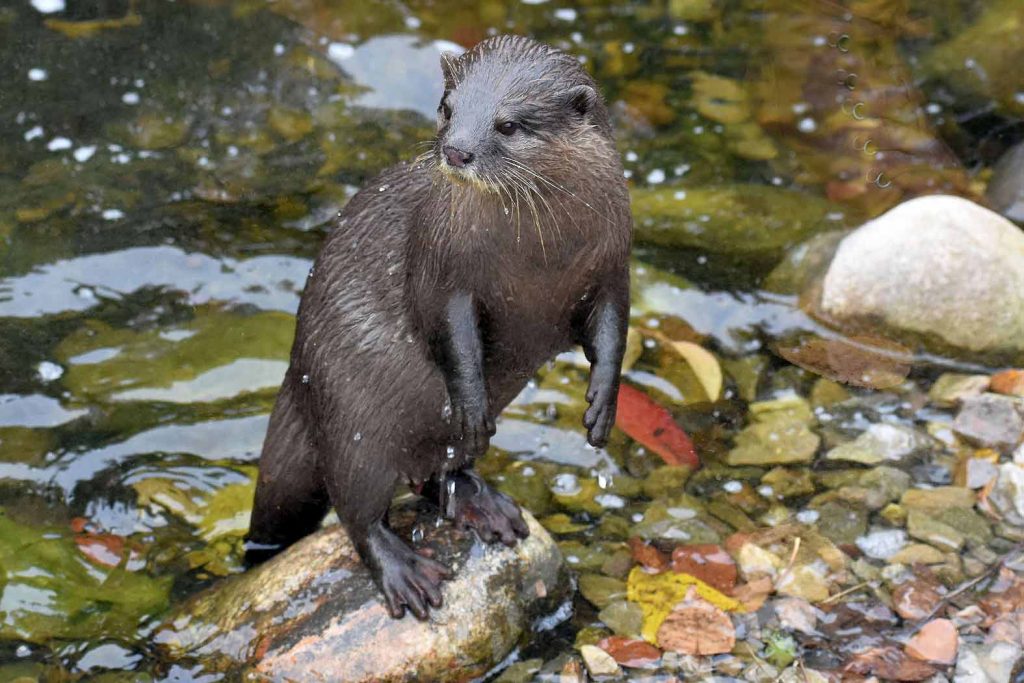
This is Todd, an Asian short-clawed otter found at the London Wetlands Centre in England. Asian short-clawed otters live in marshy areas, such as swamps, pools and rice fields, across Asia. Unfortunately, they are listed as ‘vulnerable’ because of pollution, habitat loss and hunting. This species of otter is more active during the day than some of the 13 other species found worldwide.
May 2022
Egyptian Geese
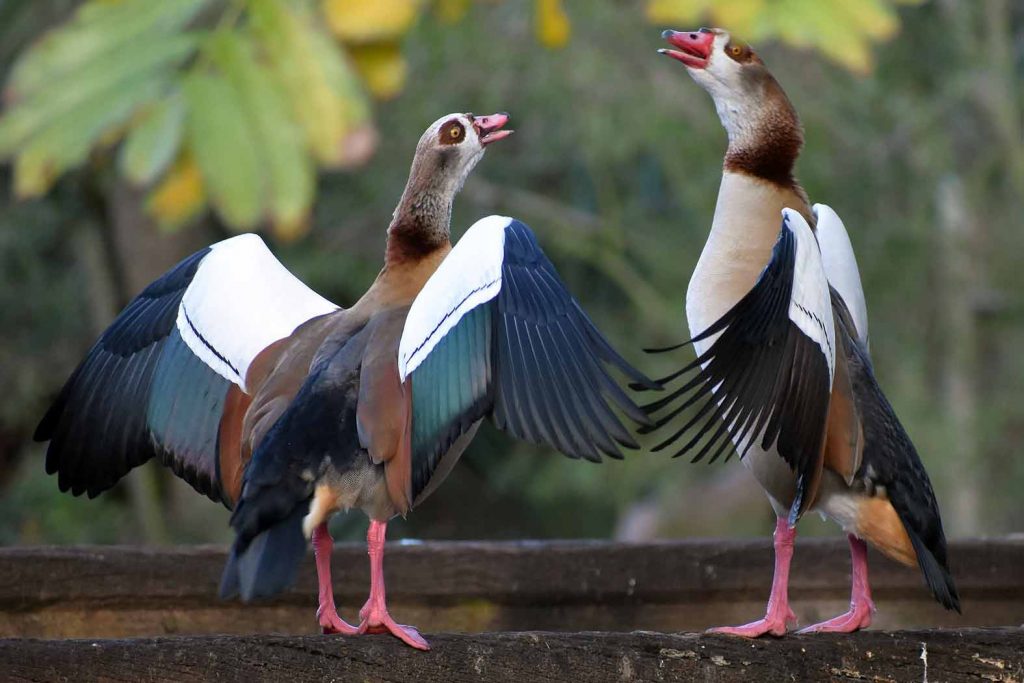
The Egyptian Goose is actually a duck, but with its long neck it does resemble a goose. Native to tropical Africa, these birds are found in Florida, Texas and Western Europe. They obtain a large portion of their diet by grazing on land but may also dabble for aquatic plants, insects, small fish, and other small creatures in water. Some birds will occasionally nest on elevated ledges, high in trees in the old nests of herons or other large birds, in large tree cavities, and in broken-off stumps. Females may lay as many as 7 eggs and both parents share incubation duties. This picture was taken at the London Wetland Centre in England. An award-winning urban wetland nature reserve, these wetlands have attracted more than 220 bird species since the construction of the reservoirs at the end of the 19th century. The two geese in this picture were acting up because a third one flew over them.
April 2022
Pigeon on Fence
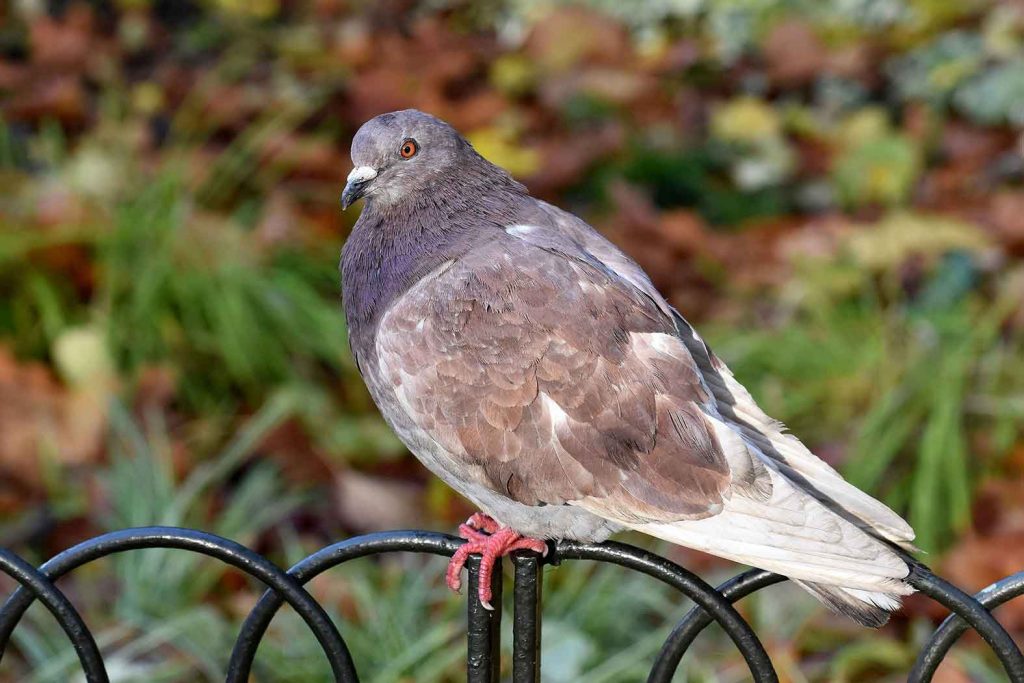
Young pigeons that have never flown are called squabs. Adult pigeons have about 10,000 feathers. There are around 400 million pigeons in the world. This picture was taken at St James Park in London, England.
March 2022
Two Deer Looking
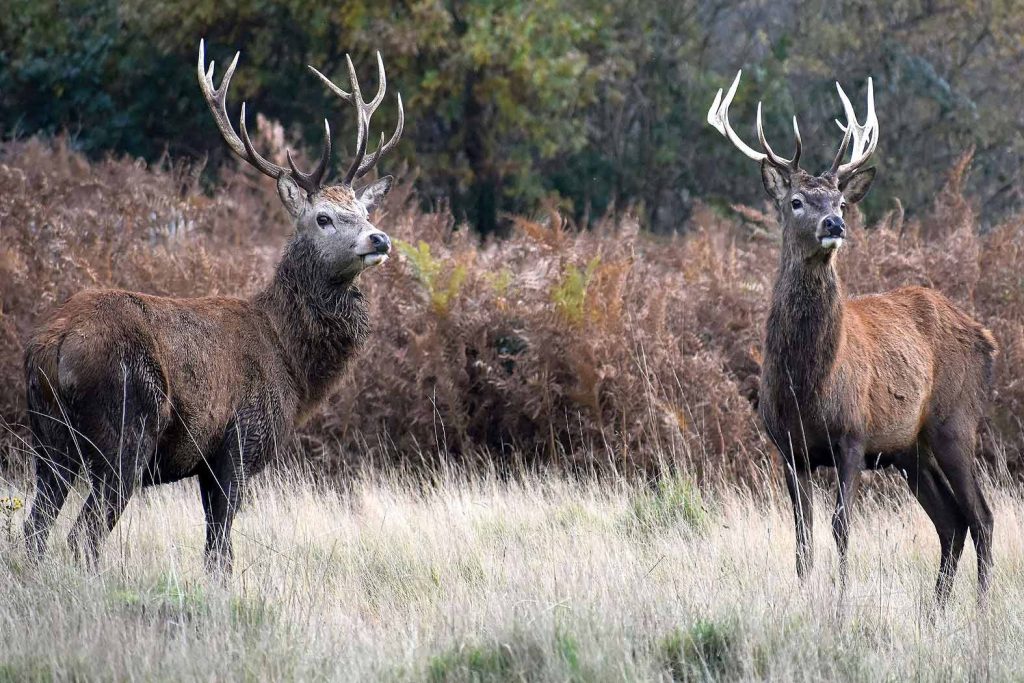
This picture was taken at London’s Richmond Park, the largest of England’s Royal Parks. It was created by Charles I in the 17th century as a deer park. It is important for wildlife conservation.
February 2022
Red Dragonfly on Wheat
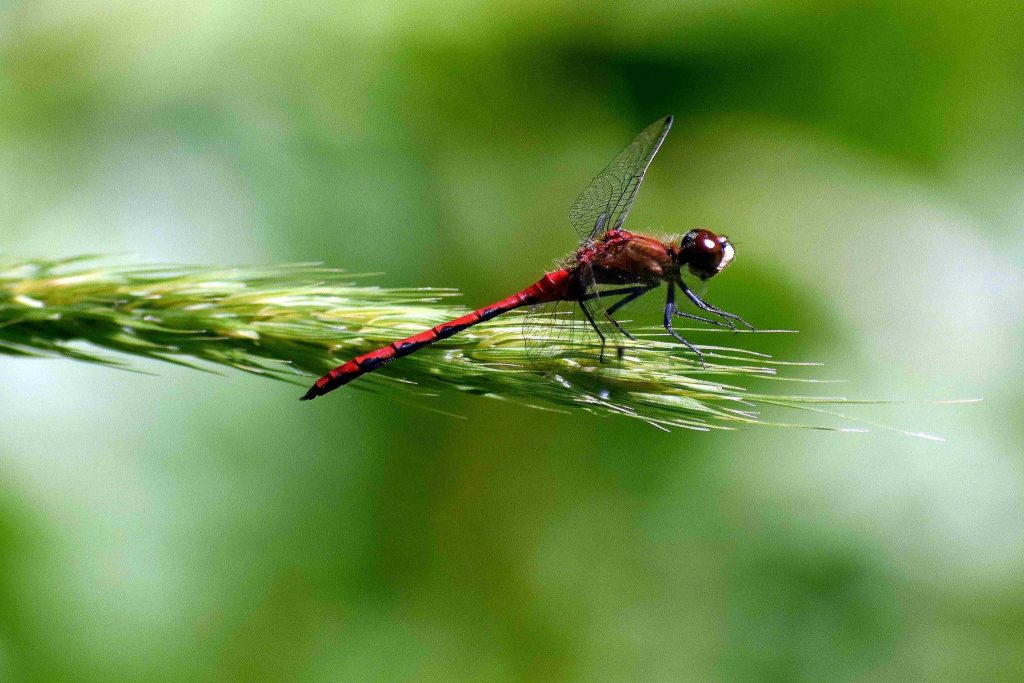
A dragonfly is an insect which has multifaceted eyes, two pairs of strong, transparent wings and an elongated body. The wings of most dragonflies are held flat and away from the body. Dragonflies are expert fliers. They can fly straight up and down, hover like a helicopter and even mate mid-air. If they can’t fly, they’ll starve because they only eat prey they catch while flying. Some adult dragonflies live for only a few weeks while others live up to a year. A single dragonfly can eat 30 to hundreds of mosquitoes per day. This picture was taken at Mud Lake.
January 2022
Tiger Lily
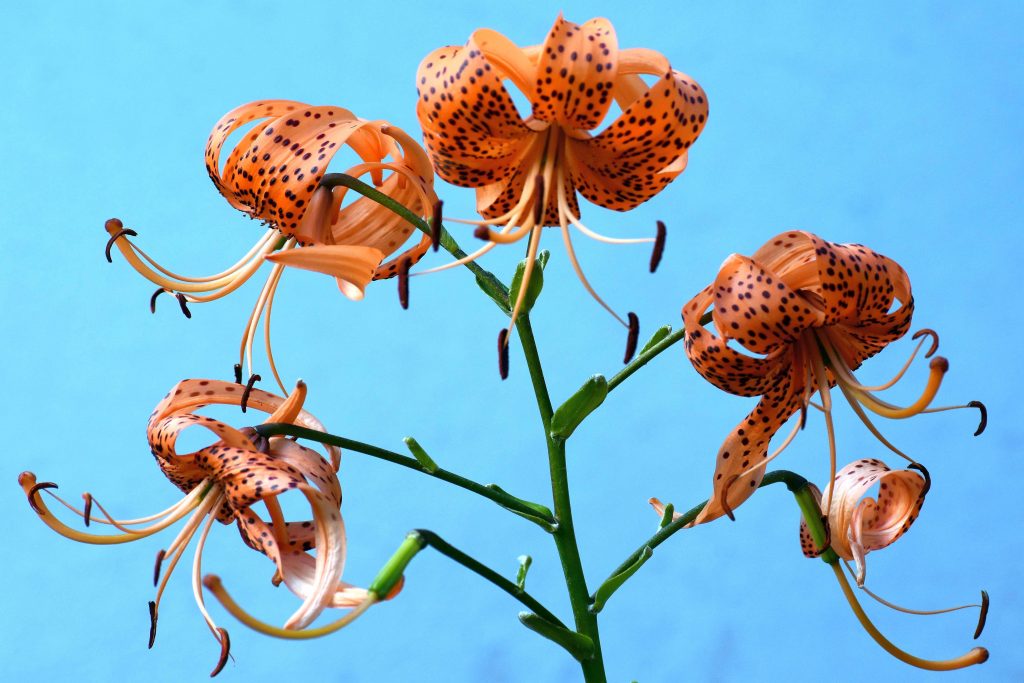
Tiger lilies are large, bright orange flowers covered with black spots on their petals, which curl backwards. The colors of a tiger lily are much like tigers, except that the animal has black stripes, while the flower has black spots. The hairy stems are covered with green, lance-shaped leaves. The tiger lily can grow up to three inches across and has a strong, sweet scent. Because this showy flower is edible, it makes a beautiful wedding cake decoration. You can also eat the bulbs.
December 2021
Coyote
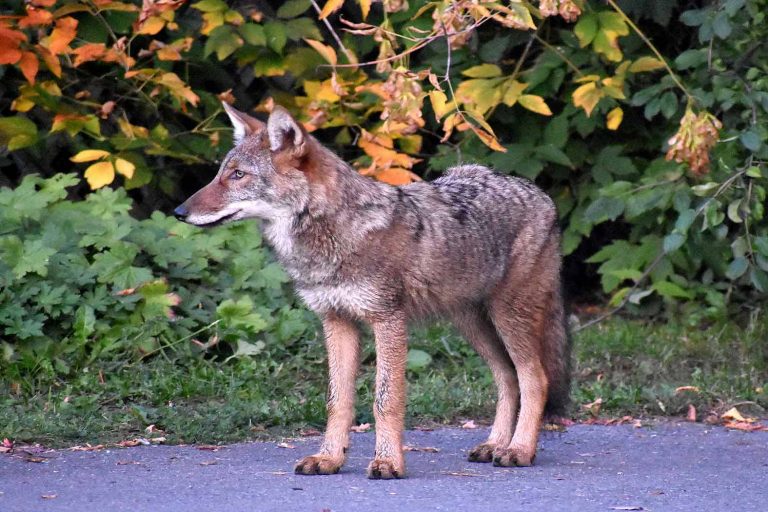
Coyotes live in a family unit or in a pack of unrelated members. They eat rabbits, rodents, birds, reptiles, fish, deer and, on occasion, fruits and vegetables. This coyote was standing at the entrance to the bike path Anita she uses, in Nepean. Shocked and alarmed, she took a few pictures of him, then raced back home. It was her shortest bike ride ever!
November 2021
St. John's Wort
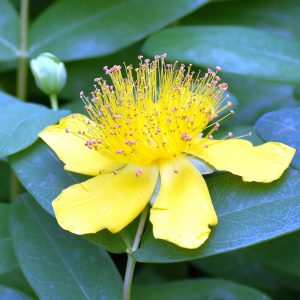
St. John’s Wort gets its name because it is often in full bloom around June 24, the day considered to be the birthday of John the Baptist. Because of its anti-inflammatory properties, it has been applied to the skin to help heal wounds and burns. This picture was taken in southwestern France
October 2021
Feral Cat
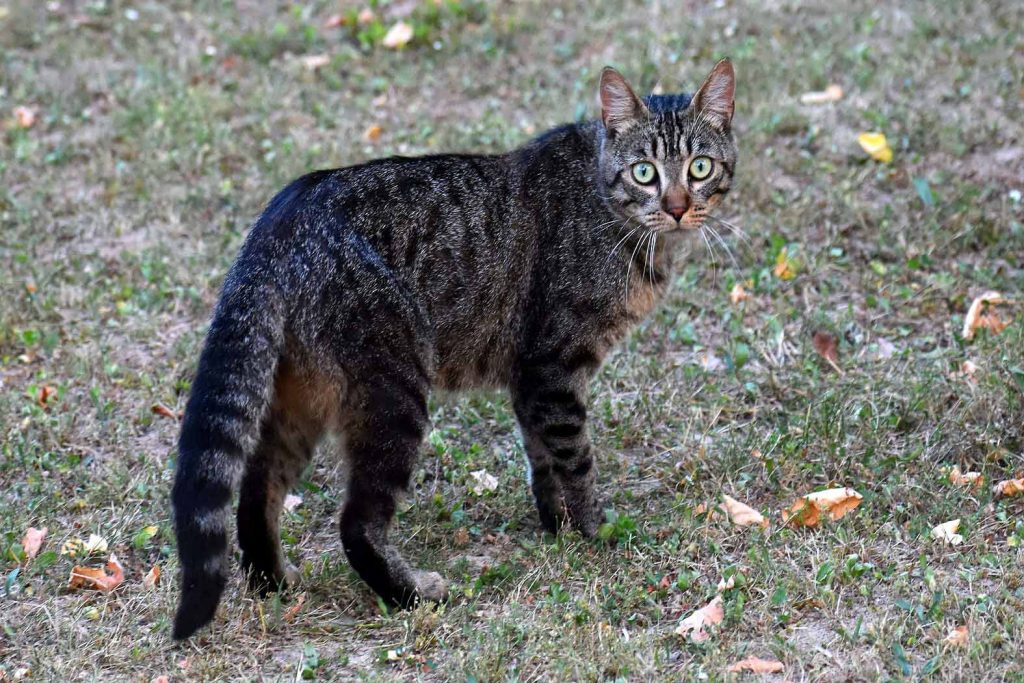
Feral cats are un-owned, and they live outdoors and avoid human contact. They do not allow themselves to be handled or touched. Usually hidden from humans, they are most active after dusk. This picture was taken in Cahors, France.
September 2021
Brimstone Butterfly Hanging On
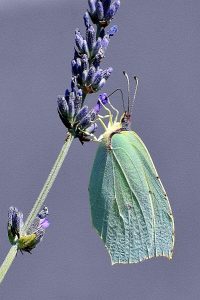
The Brimstone Butterfly is fairly large and has leaf-shaped wings. Males are lemon-yellow and females are greenish-white; both have orange spots in the middle of each wing. Brimstones rest with their wings closed. Their caterpillars feed on buckthorn and alder buckthorn leaves. This picture was taken in southern France, near Millau.
August 2021
Ice Cream Sundae for Two

Anita and her husband shared this chocolate and coffee ice cream sundae at Crescendo. The restaurant, which was created by Christopher Shafroth in 1992, offers fast quality food made on site using fresh seasonal produce. This picture was taken in Cahors, France.
July 2021
RR Bridge and Reflection
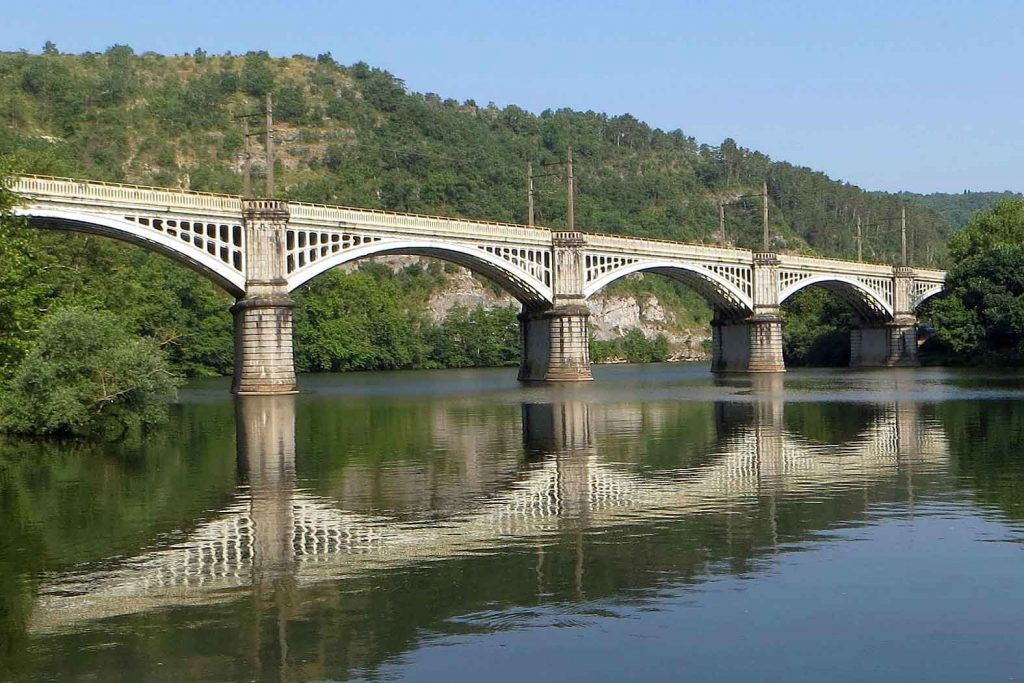
The Cahors Railroad Bridge crosses the Lot River. It is a metal deck arch bridge which means its arches are below the railway. The supporting arches are in turn supported by abutments and piers in the water. Built in 1880-1883, it is still in use.
June 2021
2 Turtles
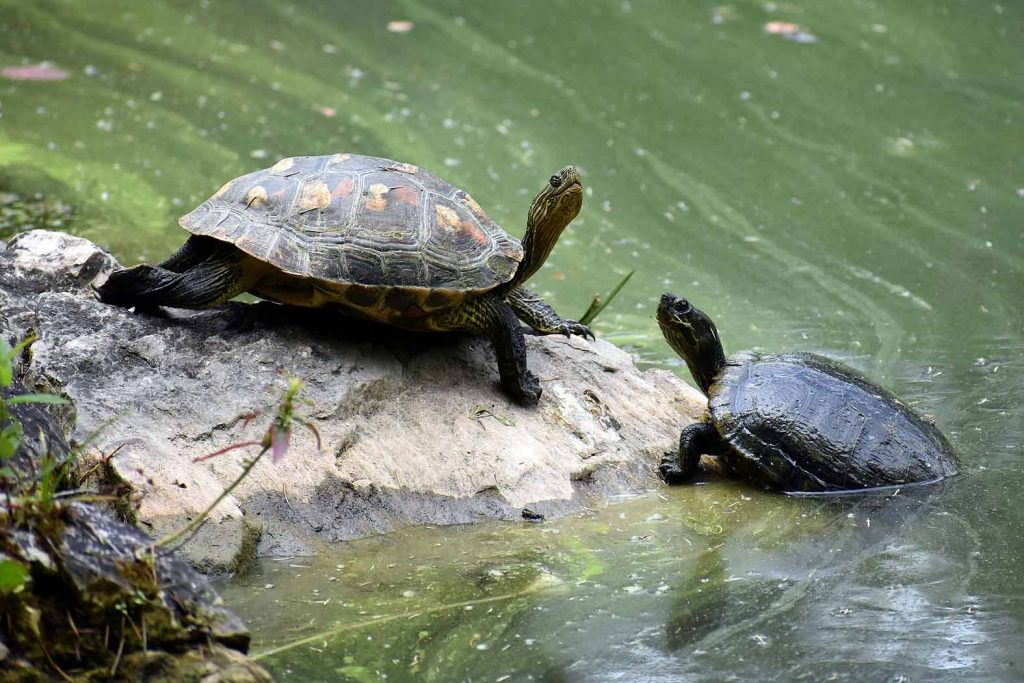
This photo was taken at Jardins Japonais in Toulouse, France. The gardens were created when Pierre Baudis, a former mayor of Toulouse, was inspired by a similar garden in Dublin, Ireland. The turtle on the rock beneath the iron dragon sculpture, a work created in 1993 by Tom Petrusson, was quite happy by itself, until the second one came by. Then it got up on all fours!
May 2021
2 Donkeys
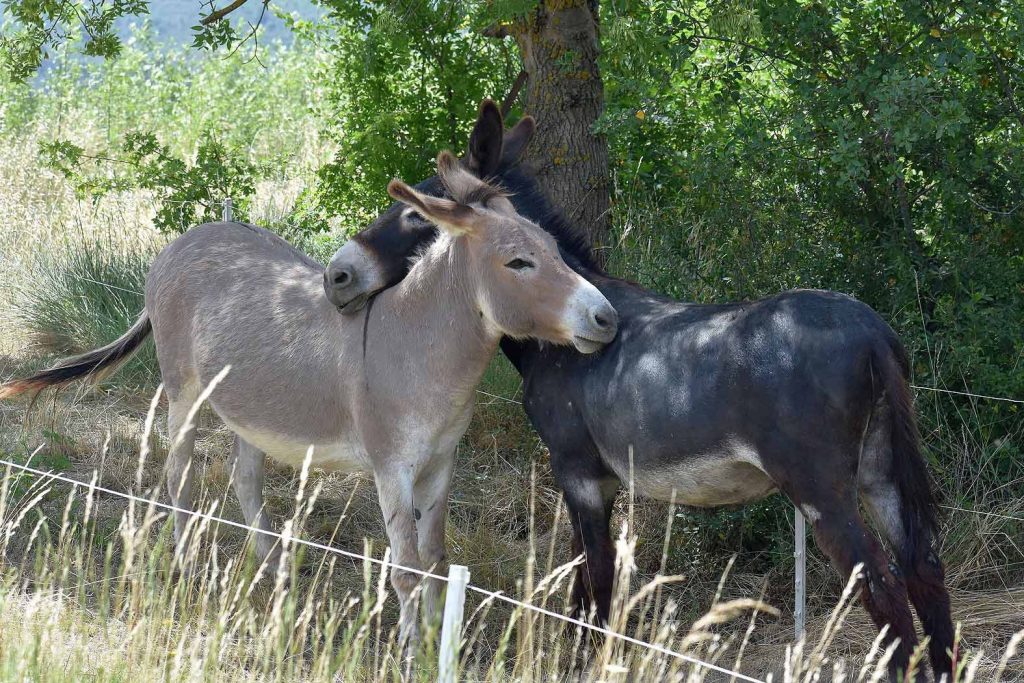
These donkeys, near Servies en Val in southern France, were standing in the shade of a tree during a heat wave. Donkeys have been used as working animals for 5,000 years. There are more than 40 million donkeys in the world.
April 2021
Northern Mockingbird
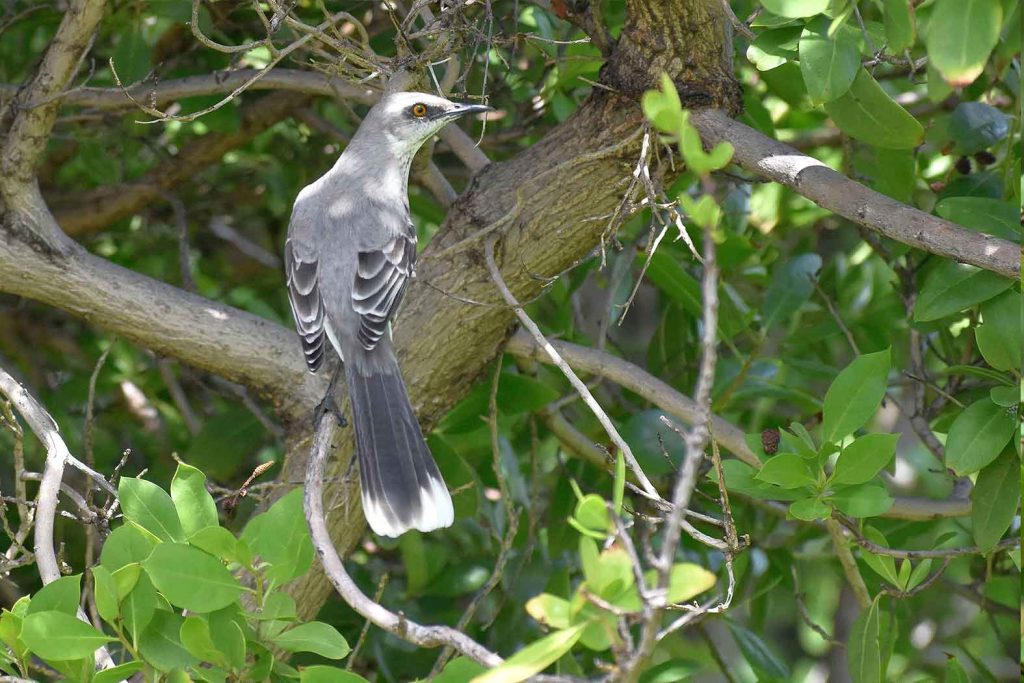
Mockingbirds are medium-sized, gray-brown birds with two white patches in each of their short round wings. They have small heads, a long, thin bill, and long legs. This bird’s Latin name means “many-tongued mimic,” because during its lifetime of up to eight years (20 in captivity) it learns and repeats up to 200 songs of other species, as well as dog barks, musical instruments, and sirens. These birds feed on fruit, berries, seeds, and insects, especially beetles, grasshoppers, caterpillars, ants, and wasps. They are found in the United States, Canada, and Mexico. The northern mockingbird is the state bird of Florida, Tennessee, Mississippi, Arkansas, and Texas.
March 2021
2 Cotingas
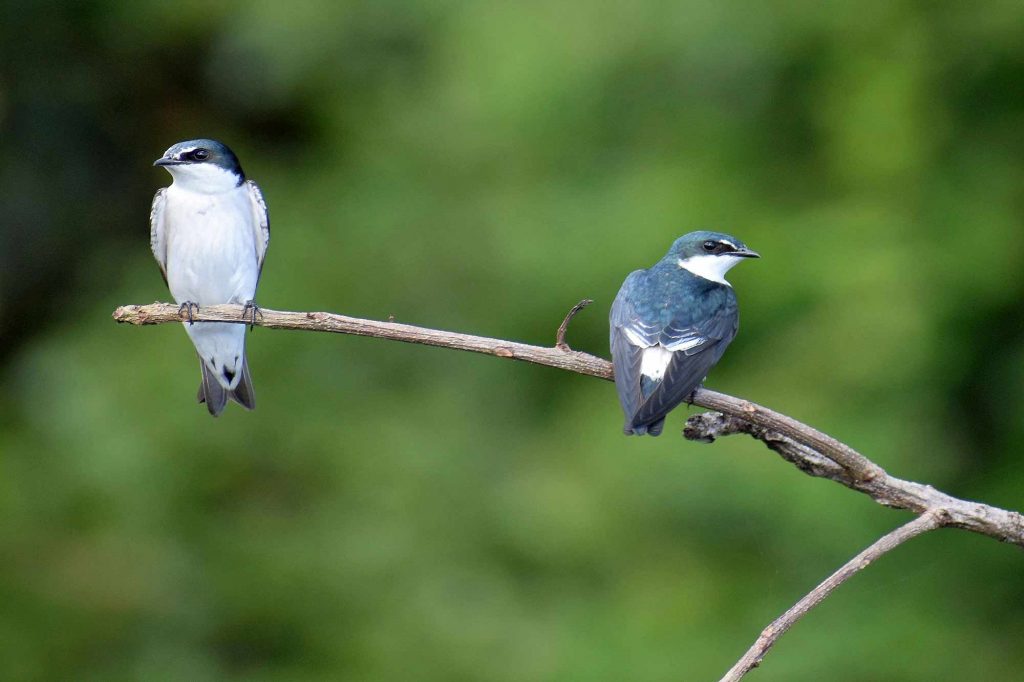
The cotinga is one of about 90 species of solitary forest birds that feed on fruit and insects. The cotingas include some of the most bizarre and vivid examples of male ornamentation found among birds. A cotinga has a broad bill with a slightly hooked tip, round wings, and short legs. Many species have odd voices. Some sound like the ringing of a bell, the lowing of a calf, or the tapping of a hammer. Constant repetition gives them the name chatterers.

